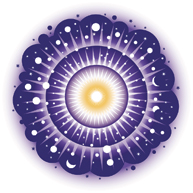Starting off with a bang
McGill researchers taking part in world's biggest science experiment
A team of McGill physicists will play a key role in the biggest science project in history. Professors Brigitte Vachon, Steven Robertson and Andreas Warburton of the Department of Physics will help interpret what happens when particles collide at energy levels slightly slower than the speed of light.

TZIGANE
"This will help us better understand nature at its smallest scale," said Vachon, noting the experiment will emulate conditions that would have existed in the first few seconds in the life of the universe — the after-effects of the Big Bang. That could allow researchers to eventually create models of the early evolution of nature, or even to map out its future development.
"Every aspect of this project is mind-boggling," Vachon said.
Starting next year, the ATLAS project, based at the CERN particle physics laboratory in Geneva, will collide particles using the facility's new Large Hadron Collider (LHC), the world's most powerful particle accelerator. The collisions will take place at a rate of about 40 million per second and at energy levels seven times greater than have ever been achieved in a lab.
Some of the resulting data will be analyzed at the TRIUMF physics lab in Vancouver, which will then farm out the more interesting results to evaluators at nine Canadian universities, including McGill.
Exactly what constitutes an interesting result will be determined by a three-tier decision-making process created in part by Vachon and her colleagues.
The McGill researchers will be involved in developing the trigger system that will define which data deserves a second, or even a first, glance. To do so, the team will emulate particle collisions on computer to predict what might take place when the real thing happens at CERN. The system will be configured so that only potentially significant results will be flagged for analysis.
Although what the scientists will learn from the project is anybody's guess, Vachon says the potential is astronomical. Just don't expect the miniature Big Bang simulations to create any tiny planets.
"Recreating the conditions of the early universe is not the goal of our research. What we're colliding are single particles," Vachon said, adding that some of the physics-related riddles that could be solved include what determines the mass of an electron, how matter and antimatter interact and what ingredients make up the darkness of space.
"There's a large quantity of dark ‘stuff' in the universe, but we can't see it. In this project, we might actually produce dark matter."
Because of the scope of the project, the sheer volume of data also requires CERN to develop the world's largest computer grid, comparable to the early days of the world wide web but "going beyond" the web's data-storage capabilities, said Vachon.
CERN scientist Tim Berners-Lee and his colleagues are credited with inventing the world wide web in 1989, intending it as a means of quickly sharing information among fellow scientists at universities and other institutions around the globe.

